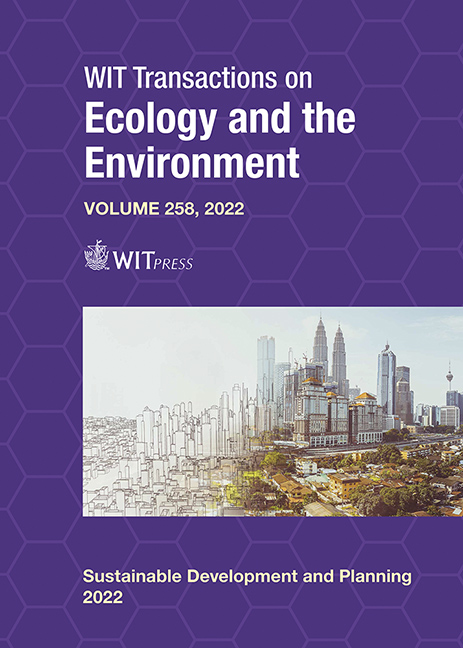ACHIEVING SUSTAINABLE DEVELOPMENT IN EGYPT: DOES PUBLIC INVESTMENT MATTER?
Price
Free (open access)
Transaction
Volume
258
Pages
14
Page Range
367 - 380
Published
2022
Paper DOI
10.2495/SDP220311
Copyright
Author(s)
SHIMAA MAHGOUB, NAGWA SAMAK
Abstract
The global transition to the Sustainable Development Goals (SDGs) has stimulated a holistic role of development planning to formulate national strategies and meet the global goals by 2030. Massive investment – particularly public investment – has crucially been regarded as a fundamental planning tool that reflects the strategies’ priorities. In addition, this transition was conducive to expanding the usage of the indicators criterion to measure development: adjusted net saving (ANS) is regarded as a composite index to measure the degree of sustainable development (SD) of a country. Accordingly, as an ex-post evaluation, this work aims to empirically examine the role of allocated public investment, in different sectors, as explanatory variables in promoting the SD in Egypt throughout the period 1990– 2019. In doing so, the autoregressive distributed lag model (ARDL) has been applied to test the cointegration relationship between SD and public investment. The research further employs the error correction model (ECM) to explore the short-run relationship. The empirical results revealed that while public investment in goods and social services sectors stimulated SD, it was not so for the transportation and storage sector. The short-run result ensures the same findings. Having this finding means that public investment in the transportation sector is not a supportive channel for SD achievement. Building on the empirical results, this research recommends re-allocating public investment in favour of the human capital and industrial sectors, considering them good channels to enhance the sustainability conditions in Egypt. Moreover, adopting a sustainable transportation strategy, considering clean and green energy, is a proactive measure to mitigate the side effect of the transportation projects. These findings shed light on the vital role that directing public investment toward specific channels can make in promoting the SD of a country.
Keywords
sustainable development, public investment, Egypt, planning, autoregressive distributed lag model (ARDL)





